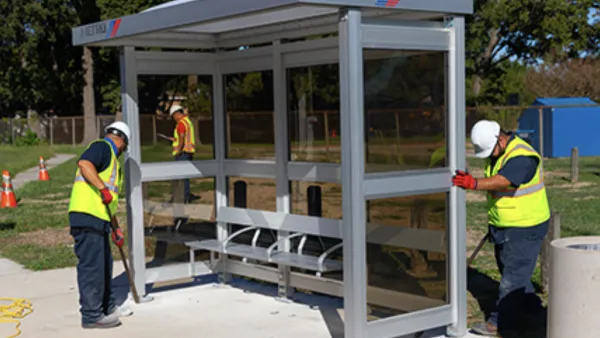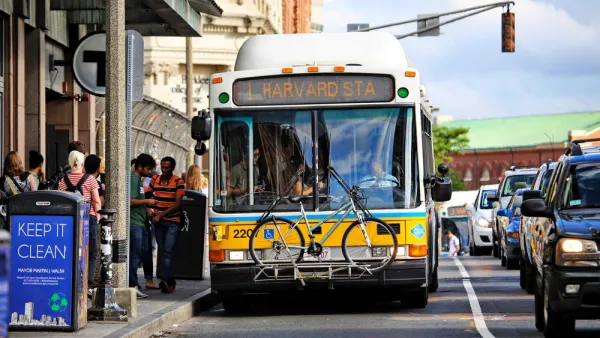Beset by chronic safety problems and rising fares, Metro is looking beyond its immediate concerns by focusing on the future, and asking its customers to help it plan for how the system should grow over the next 30 years.
With a 30% increase in population, and 40% increase in jobs, projected for the Washington D.C. area over the next three decades, and new heads of Planning and Real Estate in place, Metro is looking to chart a course for its future growth.
"While we are rebuilding the system, we need to address crowded buses,
trains and stations and develop plans to grow the system to meet
ridership demand," Catherine M. Hudgins, chairman of the Metro board,
said in a statement. "The quality of life for our residents and our
regional economic well-being depend on a robust Metro system."
In support of that strategic planning effort, this past week Metro launched a public campaign dubbed "Momentum: The Next Generation of Metro," which, as Jonathan O'Connell notes, is "aimed at eliciting answers to
some big questions: How should the agency increase capacity to reduce
crowding? Which additional types of transit are needed? What is the best
way to ensure the agency's fiscal stability?"
FULL STORY: Metro looks to riders for suggestions about the future

Analysis: Cybertruck Fatality Rate Far Exceeds That of Ford Pinto
The Tesla Cybertruck was recalled seven times last year.

National Parks Layoffs Will Cause Communities to Lose Billions
Thousands of essential park workers were laid off this week, just before the busy spring break season.

Retro-silient?: America’s First “Eco-burb,” The Woodlands Turns 50
A master-planned community north of Houston offers lessons on green infrastructure and resilient design, but falls short of its founder’s lofty affordability and walkability goals.

Test News Post 1
This is a summary

Analysis: Cybertruck Fatality Rate Far Exceeds That of Ford Pinto
The Tesla Cybertruck was recalled seven times last year.

Test News Headline 46
Test for the image on the front page.
Urban Design for Planners 1: Software Tools
This six-course series explores essential urban design concepts using open source software and equips planners with the tools they need to participate fully in the urban design process.
Planning for Universal Design
Learn the tools for implementing Universal Design in planning regulations.
EMC Planning Group, Inc.
Planetizen
Planetizen
Mpact (formerly Rail~Volution)
Great Falls Development Authority, Inc.
HUDs Office of Policy Development and Research
NYU Wagner Graduate School of Public Service




























